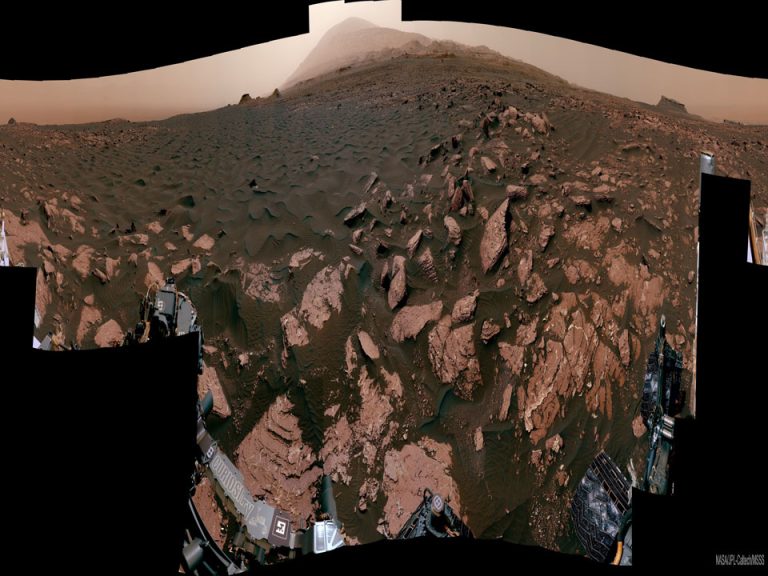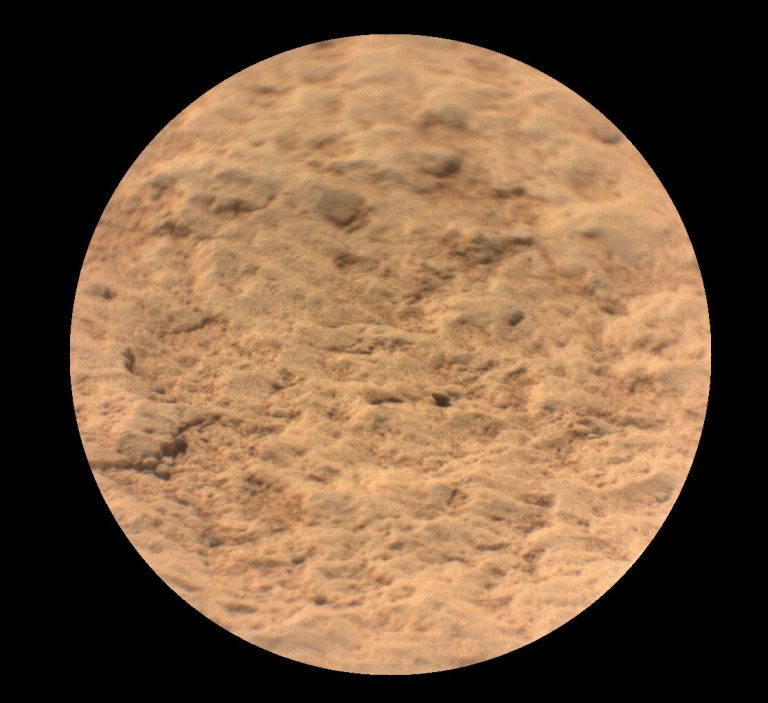2024年12月3日
Ice Clouds over a Red Planet
Image Credit: NASA, JPL-Caltech, Kevin M. Gill; Processing: Rogelio Bernal Andreo
Explanation: If you could stand on Mars — what might you see? You might look out over a vast orange landscape covered with rocks under a dusty orange sky, with a blue-tinted Sun over the horizon, and odd-shaped water clouds hovering high overhead. This was just the view captured last March by NASA’s rolling explorer, Perseverance. The orange coloring is caused by rusted iron in the Martian dirt, some of which is small enough to be swept up by winds into the atmosphere. The blue tint near the rising Sun is caused by blue light being preferentially scattered out from the Sun by the floating dust. The light-colored clouds on the right are likely composed of water-ice and appear high in the Martian atmosphere. The shapes of some of these clouds are unusual for Earth and remain a topic of research.
Tomorrow’s picture: driveway sunspots
火星上空的水冰云
影像提供: NASA, JPL-Caltech, Kevin M. Gill; 影像处理: Rogelio Bernal Andreo
说明: 如能站在火星上,你会看到什么?或许在雾霾弥漫的橙色天空下,会见到布满石块的大片广袤橙红原野,而在地平线上空,一轮带着泛蓝光晕的太阳缓缓西沉,天际更有奇形怪状的水冰云高悬。这正是美国国家航空航天局的毅力号火星车,在今年3月拍到的景观。火星的橙红色泽,来自土壤所含的氧化铁(铁锈),其中的部分微细尘埃颗粒,被风扬到大气里。而太阳附近的泛蓝光晕,就是因为悬浮尘埃散射蓝光的效率较高所造成的现象。影像右侧位于火星大气高层的淡色云朵,可能是水冰云。然而,为何相较于地球云,有些火星水冰云的形状会如此不寻常,目前仍是科学研究的课题之一。
明日的图片: driveway sunspots








One Comment